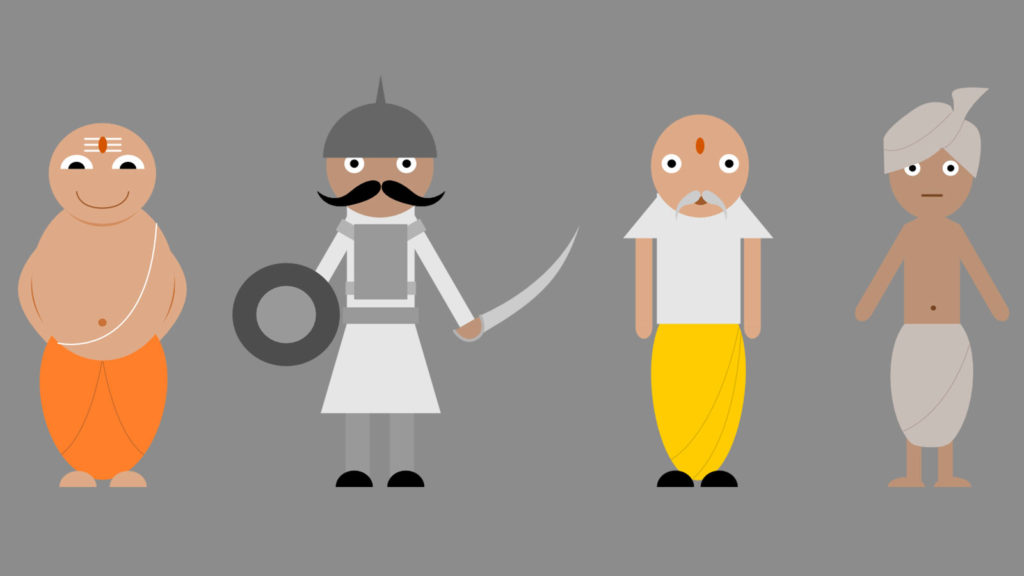
What Is In The Name? Everything Is In Surname
Rose will smell the same by any other name. Thus Shakespeare renders words meaningless in terms of identifying the object in the world. But he is also aware of how words and plays on words can create magic, confusion, and emotions. This is what he did in his plays which are famous for language twists, rhetoric, and use of language in taking human beings in the different realms of possibilities.
As Babasaheb Ambedkar said in the Annihilation of Caste, the caste labels. The words and labels invoke different emotions. The words are culture specific and they are the outcome of a particular language system. The meaning of the words (sounds that are particular to a particular language) embed the cultures and cultures give meaning to the words.
This is largely true of India’s caste system. It is a system of labelling. It is a system of social labelling where some labels are considered higher than another label. Intrinsically, the labels do not refer to something inherent in the individual, because they are the social label. The social labelling leads to social profiling and the social profiling leads to discrimination. The various labels are branded using different media and publicity devices and the most important device to brand certain labels as lofty are in the religious texts.
That is why the ManuSmriti made it a point to give dirty names to the lower castes and lofty names to the so called upper caste. The Bollywood movies make it point to name the lead actors after the so called upper caste names. Some names have inbuilt shame in it. That is why Babasaheb Ambedkar also wrote that changing names was one of the ways to shed the caste prejudices.
The names are important in the context of India’s social system.
For example, the name Brahman is applicable to all the Brahmans though they are further divided into various sub-castes. As we move down to this system of labelling, the names tend to become dirtier. Therefore the caste system not only entails destroying the religious system but also the destruction of the language that promotes the graded system of labelling. Language creates the worldview and it is an important medium to understand the world around us. Without words, it is difficult to make sense of the world around.
The social world is created by language. In various languages in India, the phrases and the common sayings are related to showing how inferior the lower castes are. This is true all over India. Babasaheb Ambedkar wanted to gather such phrases/common sayings from all the languages in India.
How to change the values associated with the names/labels is, therefore, an important question. The big battle is coming up in UP where the current CM is promoting so-called Hindu names for the Muslim areas. If the Muslims call their market Urdu Market, the caste Hindus are calling it Hindi Market. Ali Market is called Arya Market.
This is not just the battle of words, but the battle of who owns what language and that is why the old mantra of Hindu nationalists “Hindu, Hindi, Hindustan” is a useful propaganda tool for them. Hindu connotes religious identity. Hindi connotes linguistic identity, and Hindustan connotes geographical identity. If one combines religion, language, and geography, one gets a sure recipe for the supremacy of one class over another. For example, the change in the name from Bist to Yogi connotes something that has the power to polarise.
It is important to expose the Brahmans and their vicious minds that promote divisions in the country. The Brahmans throughout India are addressed with lofty names like Pandits and Buwa, while the OBCs and SCs are addressed inferiorly. This must change. Either the language that promotes social hierarchy must be completely removed from the day to day intercourse and instead of that new language should be adopted.
That is why the forefathers of the social movement in India used new words and new language to communicate with the masses at large. Babasaheb Ambedkar went a step ahead and made English as the medium of exchange for his thoughts and ideas. This tactic makes one not only universal and global but helps in shading the dead and limiting vernacular languages.
The Brahmanical Sanskrit must be dismantled.
In India, no one spoke that language ever, but a facade is created and it is designated as “the language of the Gods”. The majority of Indian population spoke and still speak variations of Prakrit, the lingua franca of ancient Buddhist India.
To paraphrase what Kabir said about the words that words are uttered by all: so-called some words create social divisions and some words create social cohesion. Some words create confusion, and some create clarity. It is important-called lower castes to throw their caste names and the caste labels immediately.
There is no delight in the identities imposed by other criminal minded people. One can choose what one should be called. That is why words like “Bahujan” has such a power. The word like “Bauddha” has such a power. The words like “Mulnivasi Bahujans” have a terrifying effect on the Brahmans.
Author – Mangesh Dahiwale



+ There are no comments
Add yours